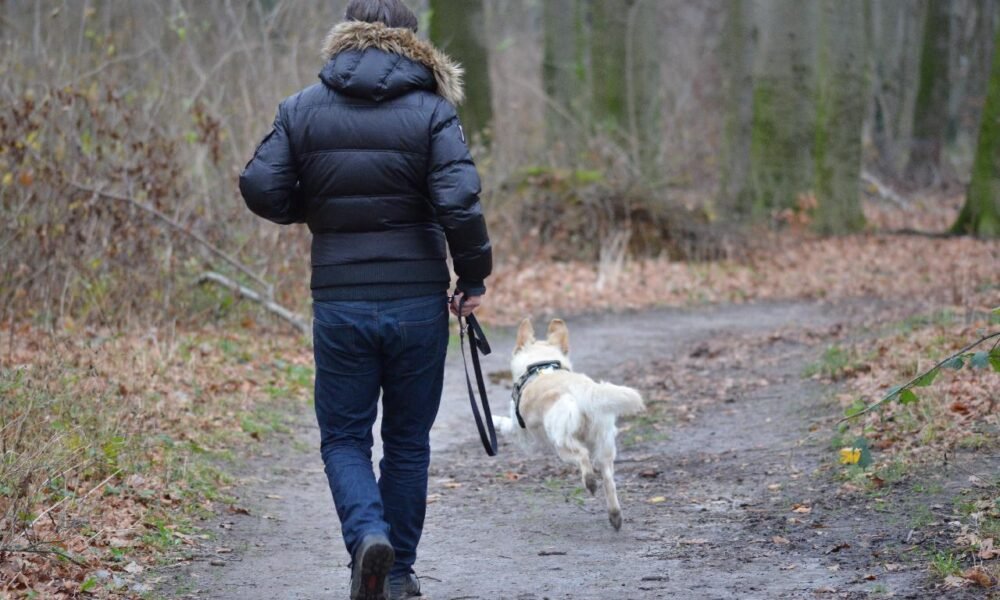Health Essentials
Pause and reflect: Lifesaving power of pets

In a country filled with stress, social unrest and lingering scars of a pandemic, pets have emerged as silent healers, loyal companions and even lifesavers.
From the bustling streets of Accra to the rural communities in the Northern Region, pets have been woven into the social fibre that offers a sense of hope. Science calls it the ‘Pet effect’, while others call it a blessing.
This marks the untold story of how pets are saving humans emotionally and psychologically across the globe.
Cultural tapestry of pets in
societies
Historically, animals have held diverse roles in societies – right from being guardians, through to being helpers on the farm and fast becoming symbols of spiritual importance.
In the Konkomba society for instance, certain animals like dogs, rabbits, and cats are revered; often associated with spiritual beliefs and cultural values. Proverbs such as ‘Taa bɛɛn Ubɔŋban daar’ (Don’t look for a dog on the day of hunting) underscores the significance of companionship as an attribute that pets embody in our society.
This cultural root significantly deepens the bonds between humans and their pets, reinforcing animals as a symbol of comfort.
Emotional boosters
In Ghana where mental health struggles are mostly stigmatised, pets offer judgment-free comfort. In Accra for instance, a number of households cherish dogs and cats hence nurturing bonds that transcend mere utility.
Pet ownership has grown as a natural way of promoting mental well-being and emotional support in times of personal or societal unrest, acting as silent witnesses and comforters.
Research from the American Psychological Association shows that interacting with pets lowers cortisol levels (stress hormone) while increasing serotonin and dopamine, chemicals linked to happiness.
The research indicates that Therapy dogs in hospitals, schools, and disaster zones provide comfort, proving that animals have an innate ability to soothe human anxiety and depression.
The use of therapy dogs as therapeutic agents helps in reducing aggressive behaviours, anxiety, and posttraumatic stress symptoms.
This suggest that animals provide a significant calming and therapeutic effect on patients with psychological disorders.
In an interview with a health expert at Nkwanta St Joseph Hospital, Doctor Emmanuel Mardo, said the use of trained therapy dogs was growing in the western part of the world due to health benefits on humans.
However, he noted that the use of these therapy dogs was rare in Africa. Even though most households have dogs or cat, these animals are there for security purposes and not as a companion.
“I’ve read about the benefits of therapy dogs in other countries like UK and America but it’s not a practice I know about here in our country,” Dr Mardo stated.
He acknowledged the potential benefits of such an initiative, stating that it could be very essential if implemented in our hospitals.
“Personally, I believe that it is a very good initiative and since it is working for other countries, it can equally work for us,” he added.
Physical health benefits
Having a pet encourages an active lifestyle. Dog owners, for instance, are more likely to meet daily exercise requirements through walks, which aid in reducing the risks of obesity and heart disease.
In an encounter with Mr Greg, an Australian dog owner in Osu-Accra, he shared benefits he derives from having a dog.
“Billy gives me the motivation to walk longer distances and yeah, his presence provides a sense of security for me. He deters potential threats and I don’t feel lonely when I’m taking a walk with him,” he noted.
The American Heart Association’s 2013 statement on pet ownership also links pet ownership to lower blood pressure and improve cardiovascular health. According to the statement, an increase in physical activity can lead to a 24 per cent reduction in the risk of early death.
Daily exercise lowers blood pressure and cholesterol levels and hence decreasing the risk of a heart disease.
Safety and security benefits
Pets play a significant role in enhancing security in various ways. They serve as a deterrent to potential intruders, protecting homes and properties from break-ins.
In an interview with Ms Faustina, a trader at Agbogbloshie, she shared her reasons for keeping multiple dogs around her property.
“I keep dogs because they protect my house. Whenever someone unfamiliar approaches, they bark and alert me,” she stated.
She also noted that the pets provide her with a sense of warmth and companionship, which helps her to alleviate feeling of loneliness as a single woman.
According to her, “Having pets around makes me feel less alone; they bring warmth to my life.”
Speaking with Mr Tayoume Kennedy Babuime, a Leading Fireman of the Ghana National Fire Service (GNFS), he also stated that dogs are used for operations such as search and rescue, detection of explosives and narcotics, and pursuit of suspects.
“Dogs are very important in our rescue operations. Their sense of smell enables us to locate people trapped in burning buildings or under debris. Especially, well trained sniffer dogs are the ones we mostly use in our operations because they have the ability to detect scents far stronger and quicker than humans which makes them more suitable for our search and rescue missions,” he explained.
Pets are far more than just animals we keep at home. They are therapists, fitness coaches and family.
In a country battling high fuel prices, political noise and endless stress, pets remind us to pause and reflect on what truly matters: love in its purest and furriest form.
Therefore, the next time you see a stray dog wagging its tail on Chorkor Road or a goat nuzzling a tail in Bawku, remember, these creatures are not just surviving Ghana’s chaos. They are saving us from it.
The writer is a Level 300 student of UniMAC, GIJ
By Cynthia Nnankorla Bikarl